Education for conscious
consumption and proper disposal
A circular economy with social impact? Yes, this is what we seek by investing in actions to encourage conscious consumption and proper disposal of plastic waste.
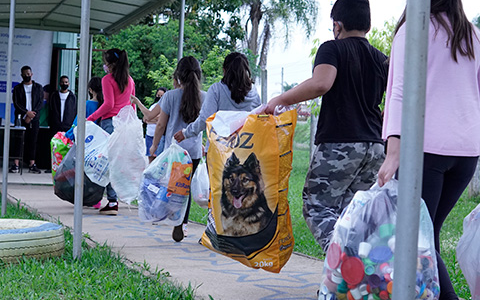
Plastitroque
In this environmental education project in schools developed by Braskem, the goal is to highlight the importance of the proper disposal of each type of waste. Plastic waste can be traded for symbolic “plasticoins”, which are then used for food, hygiene items, school supplies, and gifts. The initiative includes forwarding the collected waste to cooperatives, fostering the recycling chain, and generating income for hundreds of people working in waste separation.
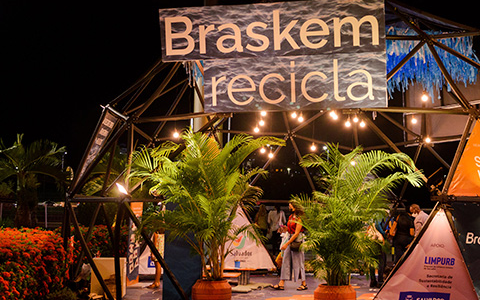
Braskem Recicla
Braskem’s project with the startup SOLOS is an initiative to encourage recycling that contributes to broadening people’s view on the proper disposal of recyclable waste. The initiative takes place periodically and each edition features specific partners. Braskem Recicla has already collected dozens of tons of recyclable materials in several Brazilian regions, positively impacting the change in people’s habits and the income of cooperative workers.
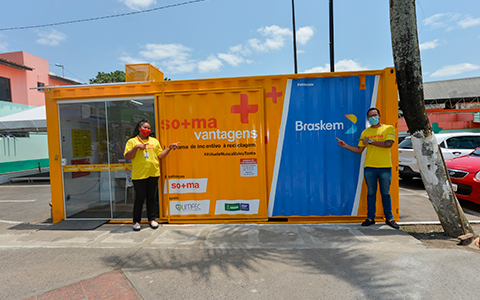
Casa SO+MA
In partnership with the startup Casa So+ma and Limpec, the public sanitation company of Camaçari (State of Bahia), Braskem is working to promote selective collection in the Bahian town. The recyclable waste discarded by the population at the collection points is converted into points of the So+ma Vantagens Program. The collected materials are then forwarded to cooperatives in the region. Casa So+ma was one of the start-ups fast-tracked by Braskem Labs.
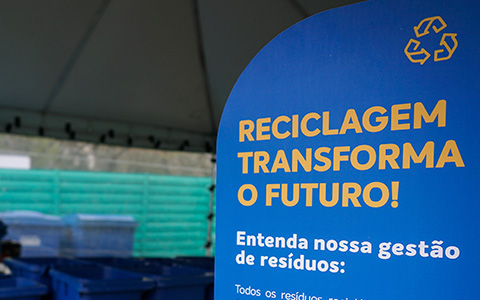
Braskem and the Ibirapuera Park
Ibirapuera Park is working towards becoming the most sustainable park in Latin America, with the goal of becoming a zero landfill by 2025, and Braskem is part of this journey. The company joined forces with Ibirapuera’s manager, Urbia, to change the destiny of garbage in the most admired green area in the city of São Paulo, encouraging proper disposal and making recycling feasible.
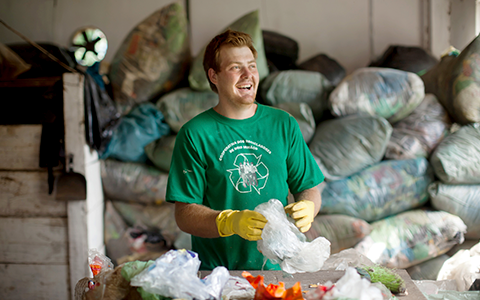
Ser+
Since 2014, Ser+ has promoted the social inclusion and socioeconomic development of workers from waste sorting cooperatives, helping to foster the development of the recycling chain in Brazil. Braskem works with partners by investing in equipment and training so that the cooperatives can increase their productivity and income.
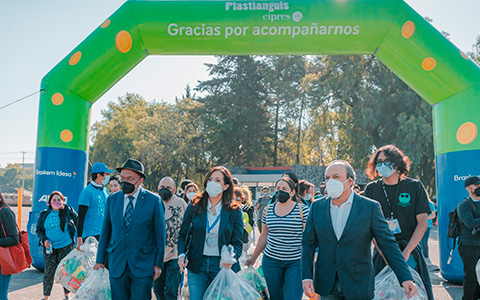
Plastianguis
Carried out in Mexico by Braskem Idesa and adopted since 2017 by the National Association of the Chemical Industry (ANIQ), the project promotes educational dynamics to identify plastic waste and encourage recycling for its proper disposal. It is currently carried out in the communities near the complex located in Nanchital, Veracruz; in the Faculty of Chemistry of the UNAM in CDMX and has expanded to one of the main cities of the country: Guadalajara.
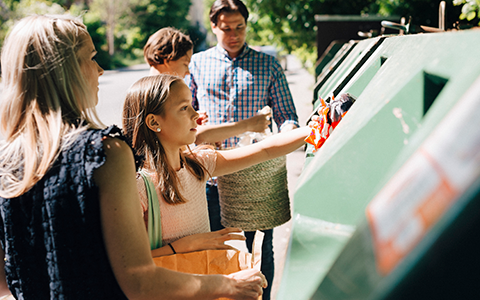
Plastien
The goal of this initiative supported by Braskem Idesa in Mexico is to remove plastic waste from the streets and turn it into income for families around the city of Nanchital, in the state of Veracruz. The program promotes environmental education and the local economy, enhancing the involvement of the population and the recycling value chain.
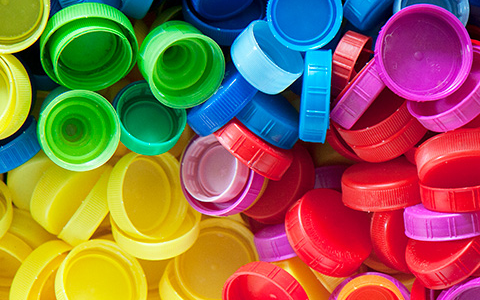
Philadelphia Eagles Sustainability Partnership
Braskem and the Philadelphia Eagles American football team have joined forces since 2018 in favour of environmental education and fostering the circular economy. The collaborative action includes an education platform for 30 schools in the Philadelphia area with a focus on Science, Technology, Engineering and Math (STEM). In addition, the partnership includes the collection and recycling of bottle caps and other plastic materials used at Lincoln Financial Field stadium and the team’s training center.
Disruptive technologies to transform the world
Innovative technologies capable of transforming industrial processes, accelerating the circular economy of plastic, and working towards sustainable development are targets of our studies. We are investing to go further!
Innovative proprietary technology for chemical recycling
We are developing a technology that enables the production of plastics and chemicals from a circular process with CO2 reduction compared to the traditional model of chemical recycling.
The process, which uses a unique catalyst and incorporates efficient heat management, reduces the need for external energy sources by acting as a scissor, which breaks down plastic waste into basic chemicals that are then used to produce the plastics found in different everyday objects.
The pilot project is planned for 2025 and the technology should be available at scale by 2030.
Learn moreCircular design
The essence of the circular economy involves original, accessible, and interconnected activities, such as circular design. After all, rethinking product and packaging design is a task that involves responding to challenges, embracing new ideas, sharing and gaining knowledge.
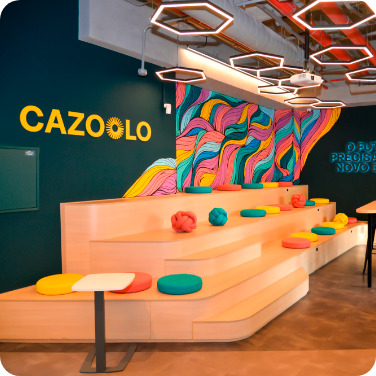
Discover Cazoolo, Braskem’s collaborative space for circular design
Cazoolo is the first Circular Economy Packaging Development Center in Brazil. It opened in 2022, in São Paulo, and is a space for brands, industries, start-ups, universities, and designers to jointly think about the packaging design stage, based on Design for Environment (DfE) and Life Cycle Assessment (LCA) concepts.
Discover Cazoolo, an initiative that connects with Braskem’s circular economy ecosystem.




